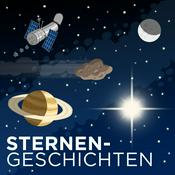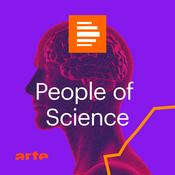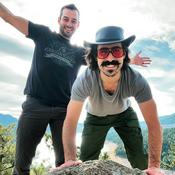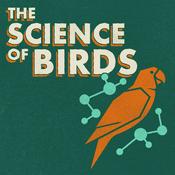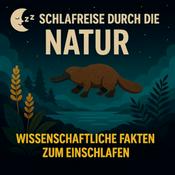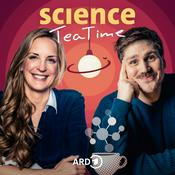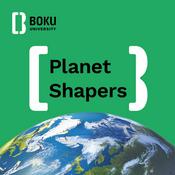39 Episoden
Winter Olympics Deep Dive: Ice Physics, Performance Pressure, and Climate Change (EP. 26)
18.2.2026 | 1 Std. 50 Min.Hosted by Lester Nare and Krishna Choudhary, this episode is a Winter Olympics deep dive from first principles—physics, neuroscience, and climate science in one ride.
• Why ice is slippery: the “water layer” story is incomplete—new nanoscale measurements suggest a far more viscous, thicker interfacial film than textbook intuition.
• Choking under pressure: how high stakes can disrupt neural control—reward signals can push brain states out of the “optimal zone.”
• Climate change vs winter sports: why artificial snow has limits, why some legacy venues may become unreliable, and what “snow farming” is trying to solve.
• Rundown: AI doing physics proofs, cat vocalizations, immune epigenetics, origin-of-life genetics, and an “impossible” exoplanet system.
Support the show: FFPpod.com/donate
Follow: @FFPod (X / Instagram / TikTok / Facebook)
00:00 Intro
00:32 Episode setup
02:15 Why is ice slippery?
33:23 Rundown + housekeeping + donate
01:09:11 Choking under pressure (neuroscience)
01:32:32 Climate change & the Winter Olympics + potpourri
01:43:47 Wrap-up + closing- Hosted by Lester Nare and Krishna Choudhary, this episode jumps from plant biochemistry to quantum metrology to cancer evolution. We start with a University of York breakthrough that solves a ~50-year mystery in alkaloid biosynthesis—identifying the “missing” enzyme behind a key asymmetric step plants use to build powerful defensive (and pharmaceutically useful) molecules. Then we go deep on quantum sensing with entangled atomic clouds, showing how correlated measurements can beat the standard quantum limit. Finally, we close with ALFA-K, a new tool that maps local fitness landscapes to predict how aneuploid cancers may evolve under pressure from therapy.
Summary
Plants making medicines — the “phantom enzyme” in alkaloid biosynthesis and why solving this pathway matters for scalable drug production.
Quantum measurements with entangled atom clouds — squeezed/entangled states, noise reduction, and why correlations unlock better sensing.
Predicting cancer evolution — ALFA-K and measurable fitness landscapes for aneuploidy-driven trajectories under treatment.
Show Notes
Story 1 — Plant alkaloid biosynthesis (University of York)
Paper — New Phytologist
Story 2 — Quantum measurements with entangled atomic clouds (University of Basel)
Paper — Science
Story 3 — Alpha-K (Moffitt Cancer Center)
Paper — Nature Communications - Hosted by Lester Nare and Krishna Choudhary, this episode is a full-spectrum moonshot: why Artemis II matters, how the mission actually works (SLS, Orion, translunar injection, free-return trajectories), and a first-principles teardown of the most common Apollo “hoax” claims—Van Allen belts, waving flags, shadows, and “why aren’t there stars?”
We also run a quick Rundown of wild science headlines (ancient cave art, elevation-dependent warming, dogs and vocabulary, and peptide bonds in deep space), before coming back to the core question: what it takes to send humans safely around the Moon—again.
Summary
Artemis II mission profile — what “free return” means, why TLI timing matters, and what Orion is doing in high Earth orbit before the Moon.
SLS vs Saturn V — the engineering and risk trade-offs behind modern human-rated heavy lift.
Apollo myths, explained — radiation belts, camera exposure physics, and why the “flag,” “shadows,” and “no stars” arguments don’t survive basic mechanics and optics.
Proof Apollo happened — retroreflectors, orbital imagery, and the reality that the world was watching.
Show Notes
NASA Artemis Program
NASA Orion Spacecraft
NASA Space Launch System (SLS)
NASA Apollo 11 Mission Overview - Hosted by Lester Nare and Krishna Choudhary, this episode runs from JWST’s “Little Red Dots” (and what they imply about early supermassive black holes), to a TimeVault method for recording gene expression over time, to 8,000-year-old Halaf pottery that may encode geometric sequences — plus a quick Cloud9 follow-up on the “starless dark-matter halo” debate.
Summary
JWST’s Little Red Dots — why these compact red sources don’t behave like normal galaxies or quasars, and how an ionized-gas “cocoon” model could reconcile the data.
TimeVaults — a genetically encoded “vault” that protects RNA long enough to capture time-series biology, not just snapshots.
Math before numbers — Halafian motifs that appear to follow geometric sequences (4–8–16–32–64) and what that suggests about early cognition.
Cloud9 update — what new data would actually settle RELHIC vs. “dark galaxy.”
Show Notes
JWST “Little Red Dots” (Nature)
TimeVaults (Science)
Halaf pottery + prehistoric mathematical thinking (Journal of World Prehistory)
Cloud9 / RELHIC follow-up (arXiv) Cloud9 Dark Matter Halo, Jellyfish Sleep, and String Theory Hidden in Nature (EP. 22)
20.1.2026 | 1 Std. 39 Min.Hosted by Lester Nare and Krishna Choudhary, this episode runs from the deep math of string theory to the biology of sleep—then out to a starless “ghost cloud” that may be a naked dark-matter halo. We open with a Nature paper showing that physical networks in nature (brains, blood vessels, fungal networks) appear to organize like energy-minimizing surfaces—spitting out the same branching rules you see in soap films and (surprisingly) in the mathematics behind string theory. Then we hit a neuroscience twist: even simple jellyfish need sleep—and the evidence points to sleep as a repair cycle for DNA damage. We close with Cloud9, a newly characterized, starless gas cloud that could be a rare “reionization-limited” RELHIC—potentially exposing a dark matter halo without the glare of stars.
Summary
String theory… in your body? Why real-world transport networks converge toward minimal-energy geometry—and what that has to do with string-theory math and 120° branching angles.
Jellyfish need sleep (and it’s not optional): Evidence that sleep pressure tracks cellular stress and DNA damage repair—even in a brainless animal.
Cloud9: A nearby starless cloud that may be a dark matter halo in plain sight—plus what it implies about “missing” galaxies and the post-reionization universe.
The Rundown: iron asteroids, artificial metabolism (ReForm), scalable helper T-cells from stem cells, and NASA’s Pandora exoplanet mission.
Show Notes
Physical networks / string-theory-like math (Nature)
Jellyfish sleep & DNA repair (Nature Communications)
Cloud9 (Astrophysical Journal Letters)
Weitere Wissenschaft Podcasts
Trending Wissenschaft Podcasts
Über From First Principles
From First Principles is a fast, funny, and rigorous breakdown of the biggest science stories of the week, hosted by Lester Nare and physicist Krishna Choudhary, PhD. We go past headlines into the actual mechanics: what happened, why it matters, and what everyone’s missing.
Expect physics, space, AI, energy, biotech, and the occasional “wait… is that real?” story. If you’re curious, skeptical, and you like learning in public — you’re in the right place.
Podcast-WebsiteHöre From First Principles, Der Pragmaticus Podcast und viele andere Podcasts aus aller Welt mit der radio.at-App

Hol dir die kostenlose radio.at App
- Sender und Podcasts favorisieren
- Streamen via Wifi oder Bluetooth
- Unterstützt Carplay & Android Auto
- viele weitere App Funktionen
Hol dir die kostenlose radio.at App
- Sender und Podcasts favorisieren
- Streamen via Wifi oder Bluetooth
- Unterstützt Carplay & Android Auto
- viele weitere App Funktionen


From First Principles
Code scannen,
App laden,
loshören.
App laden,
loshören.





